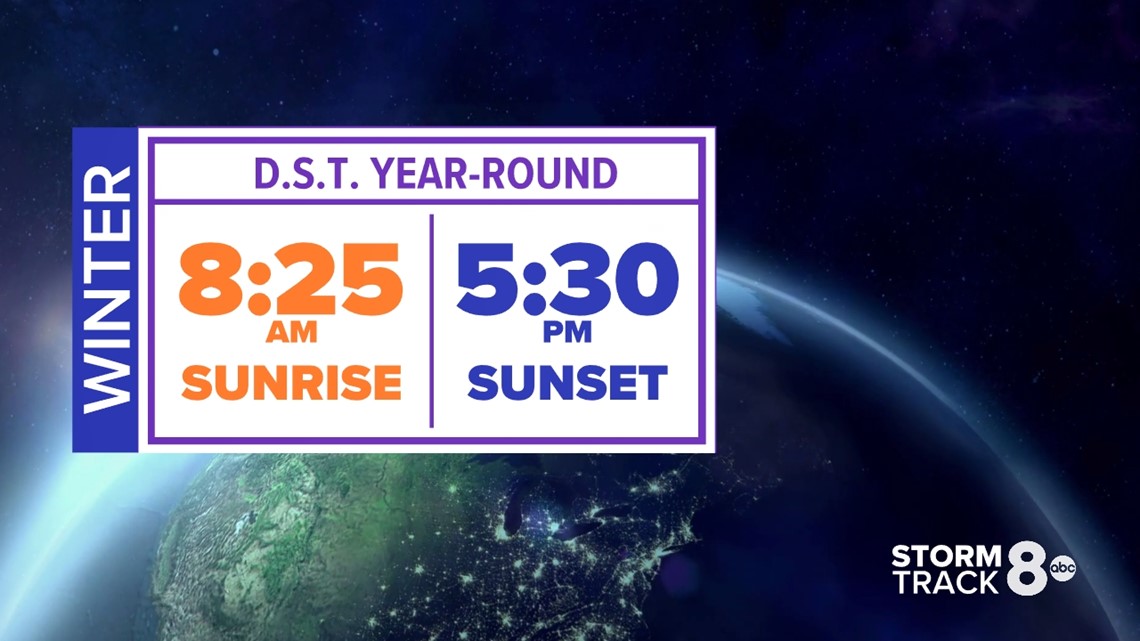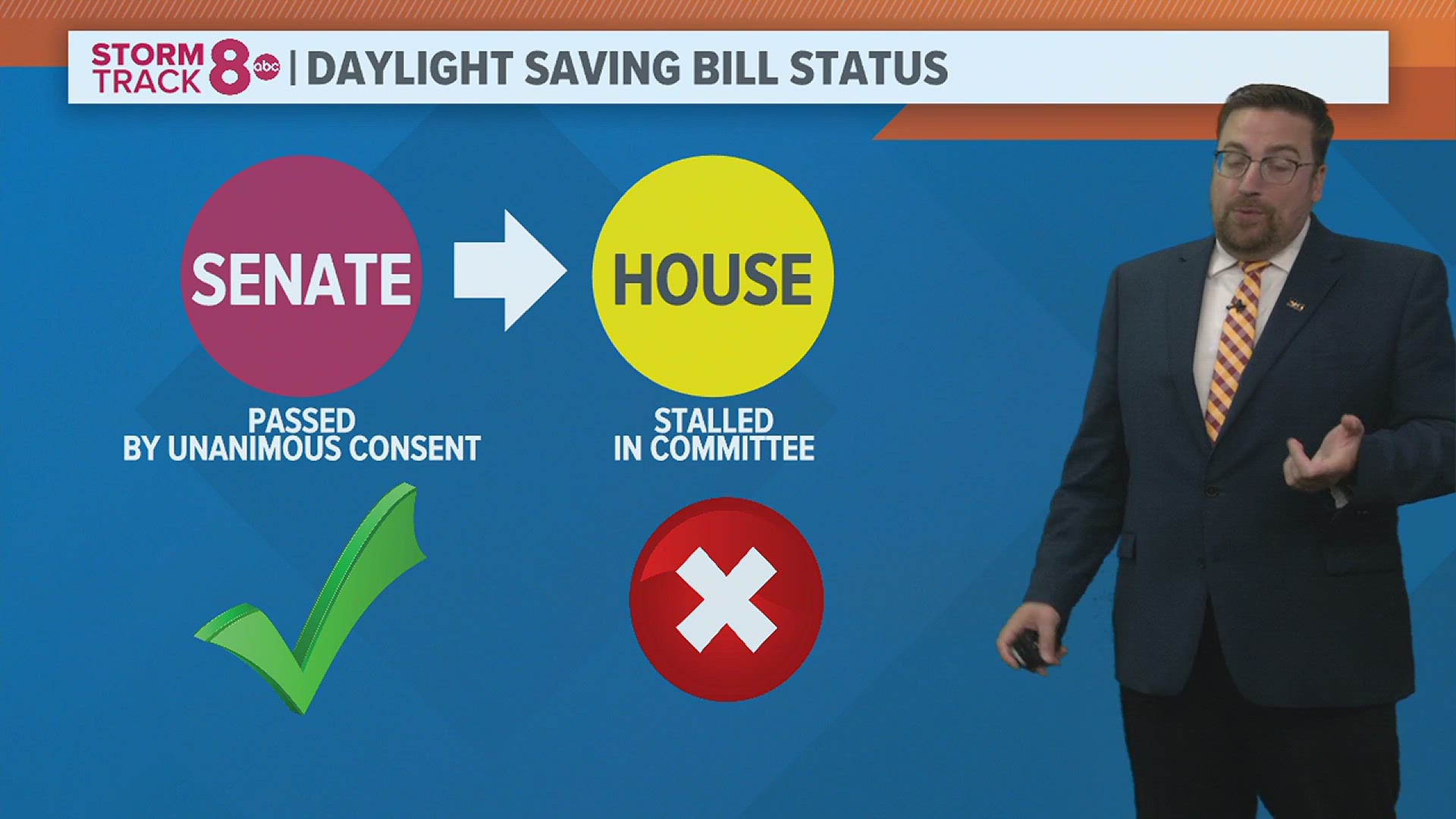MOLINE, Ill — Astronomical fall officially kicks off this Saturday, September 23, marking the transition from summer to winter. Length of daylight will continue a quick decline through October with our first sunset before 7:00 pm also expected on September 23rd. Speaking of time, get ready to fall back again this November as daylight saving time ends. Here's what we know about the status of a bill that would have made it permanent this fall.
Sunshine Protection Act of 2023
A little brief history of the bill before we get to the status. The Sunshine Protection Act is a bill introduced in the U.S. Senate every year since 2018 by Senator Marco Rubio of Florida. Representative Vern Buchanan of Florida also introduced the legislation in the House of Representatives this past spring. The bill, if enacted, would establish permanent daylight saving time nationwide. Arizona, Hawaii, and other U.S. territories that already follow permanent standard time would be exempt.
Where things stand with the bill today
As of right now, there are no signs that the bill will be passed by the U.S. Congress this year. In March of 2022, the Sunshine Protection Act passed through the Senate by unanimous consent, meaning no formal vote took place, but no senator objected to its passage. Meanwhile, a companion bill in the House stalled in committee, leaving the Sunshine Protection Act hanging in the balance.
More than two dozen dates have talked about legislation regarding daylight saving time this year. No new laws have been passed in those states, yet. Reminder, states can pass bills wishing to adopt permanent daylight saving time, but Congress has to approve it and as of right now, that's not happening.
The biggest impact
If a permanent daylight saving time bill were to ever pass, the most noticeable impact would be a later sunrise during the months of November to March. There would also be slightly more daylight in the evening, but not much.
If you are curious about what would happen if we got rid of daylight saving time altogether, check out this throwback question.


Sunrise at the latest in December would occur as late as 8:25 a.m. That does tend to make it a little more difficult for some groups, especially kids going to school in the dark. A top concern of many parents in regard to this type of bill.
So, come early Sunday, November 5th, get ready to adjust your "internal" clocks for another "fall back"!
Have a question you would like me to answer for an upcoming Ask Andrew segment? Submit it, here.
Watch more news, weather and sports on News 8's YouTube channel

